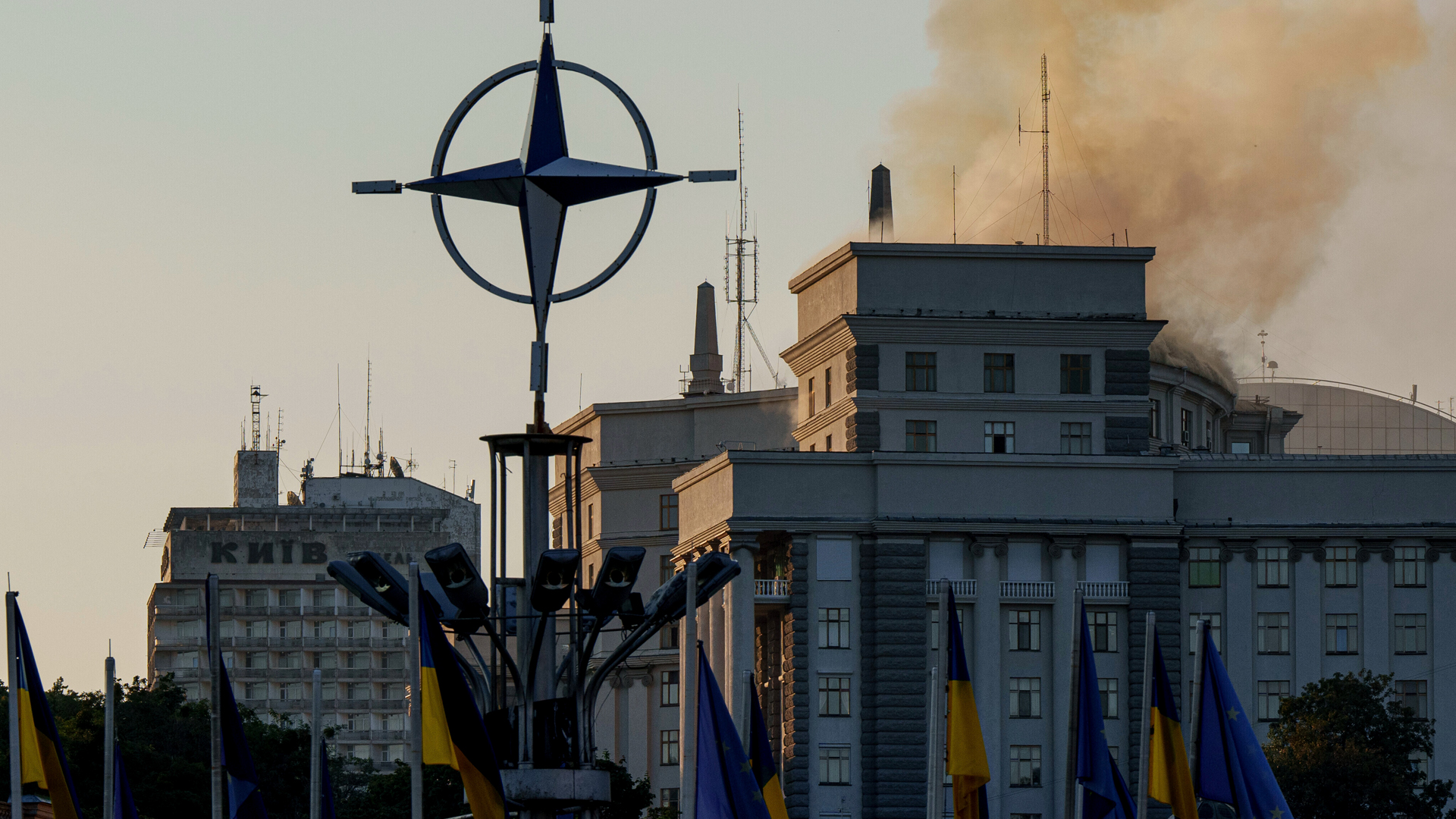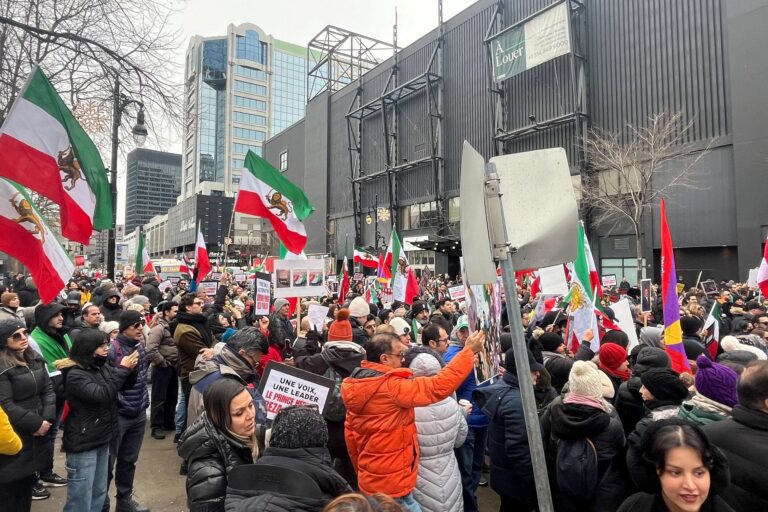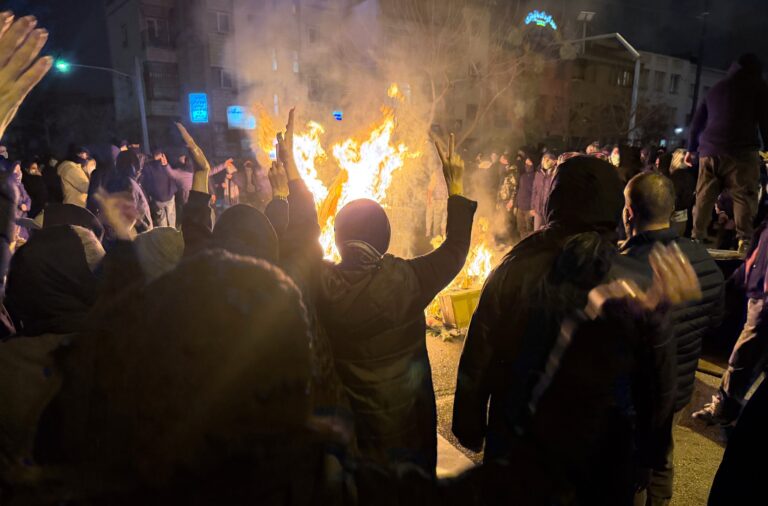(Version française disponible ici)
Pro-Russian former Ukrainian president Viktor Yanukovych, ousted from power in 2014 after the Maidan revolution, has recently resurfaced in Russian media. There, he denounced the “arrogance” of the European Union (EU) during pre-2014 negotiations and warned against NATO’s “ambitions” for Ukraine.
This appearance fits into the Kremlin’s strategy of delegitimizing the current authorities in Kyiv by presenting Maidan as a Western plot, while justifying, after the fact, its goal of regime change – reminding everyone that, in Moscow’s eyes, this remains the only real resolution to the conflict.
The media resurrection of Yanukovych is not insignificant. More than a decade after his exile in Russia, he remains for many Ukrainians a symbol of corruption and repression. And while Moscow parades such symbolic figures, the war is not letting up on the ground – as illustrated by the September 7 strike on the Ukrainian government headquarters in Kyiv.
Thus, if the West is waiting for a Russian military collapse or a leadership change as the way out of the conflict, it risks waiting indefinitely. Russia shows no sign of capitulation. The urgency of seeking peace therefore lies not in the Kremlin, but in Washington, Ottawa, and European capitals.
This in no way excuses Russia’s aggression, which remains the root cause of the war. The confrontation’s origins are older, dating back to debates over the status of Russian and Ukrainian languages in the late 1990s – debates Moscow gradually weaponized to portray Kyiv as hostile to its minorities. Since 2014, however, between the annexation of Crimea and the war in Donbas, Russia has pursued a series of actions culminating in the 2022 invasion, causing massive destruction and the exodus of millions of Ukrainians. The staging of Yanukovych mainly illustrates that Moscow is preparing for a long confrontation, convinced its very survival is at stake.
An existential war for Moscow
For Russian leaders, Ukraine is not just a neighbouring country but a vital frontier. They fear NATO expansion, which would place Western military infrastructure directly on Russia’s borders.
Kyiv also carries symbolic weight: in the Russian historical imagination, the Ukrainian capital is the cradle of Kievan Rus. Added to this is the fear that NATO – the largest peacetime military alliance – could deploy weapons systems on Ukrainian territory capable of striking Russia. It is precisely this perception, rooted in NATO’s very raison d’être, that fuels the sense of existential threat.
These reasons explain why the Kremlin’s strategic vision would not change under a new leader in Moscow. Whether Putin or a successor, the conviction remains that Russia’s survival is being decided in Ukraine. Betting on a leadership change to shift this strategic line therefore makes little sense.
When elites push for escalation
Russian elites are not voices of moderation. During the Syrian civil war, between 2011 and 2015, hardliners convinced Putin to intervene militarily to preserve Moscow’s strategic interests against jihadism. In 2018, after a Russian plane was accidentally destroyed during an Israeli raid, Putin adopted a cautious line, but generals and some commentators demanded a harsher response.
Crimea also illustrates this mechanism. After Kyiv’s government collapsed in 2014, two camps emerged in Moscow. One advocated immediate acceptance of the plebiscite and annexation to prevent a NATO presence on Russia’s borders. The other proposed first presenting a list of demands to Washington and Brussels, and proceeding with annexation only if those demands were rejected. Under pressure from the security elites, the first option prevailed, leading to the swift annexation of the peninsula.
These episodes highlight that even when Putin hesitates, elites can push him away from moderation – reinforcing the idea that any peace agreement perceived as a concession would be rejected as contrary to Russia’s national interest.
Costs and endurance
In the long run, it is the West that pays the higher price for this war. In the United States, aid to Ukraine deeply divides Congress; in Europe, weapons stocks are dwindling and popular support is eroding, creating fertile ground for populist parties.
In Canada, calls to increase military spending run up against budgetary constraints and a divided public opinion. Political pressures combine with tangible economic costs – inflation, supply chain tensions, slowing growth – which are increasingly difficult to justify in democratic societies.
Russia, by contrast, has converted its economy into a war economy. Its factories run around the clock, employment is artificially stabilized, and sanctions are circumvented through new partnerships with China, Turkey, and other countries in the Global South. The population, subjected to relentless official narratives and growing political constraints, has largely resigned itself to a prolonged conflict.
Every crisis is recycled into a political opportunity – whether to strengthen the military apparatus, silence dissent, or remind the public that the ultimate goal remains regime change in Kyiv.
The system shows a troubling ability to sustain itself over time. Western democracies, by contrast, face regular elections that weaken strategic coherence. Opposition parties often use support for Ukraine as a partisan wedge, limiting governments’ room for maneuver. This domestic dynamic makes it harder to build a stable, long-term foreign policy.
Some in the West still bet on regime collapse. But recent history counsels caution: after Crimea in 2014, despite sanctions, Moscow consolidated its control; in Syria, despite losses and rivalries, it expanded its influence. In each case, Russian elites chose escalation over withdrawal. There is no indication Ukraine will prove an exception.
A Western urgency
The Kremlin is convinced that time works in its favour. Western democracies do not have that luxury: every month deepens political fatigue, economic costs, and internal divisions. It is up to the United States, Canada, and Europe to recognize that finding a political solution is urgent – not because Russia demands it, but because our democratic societies cannot withstand an endless war.
In practice, this requires greater investment in diplomatic channels, both bilateral and multilateral, to explore realistic compromises. The West must also explain more clearly to its citizens why a negotiated peace, however imperfect, serves their long-term interests better than a futile war of attrition. It also means strengthening diplomatic capacity itself: investing in foreign services, rehabilitating the role of multilateral institutions, and embracing diplomacy not as a sign of weakness but as a tool of power.
Too often, initiatives are perceived as concessions, when they could be presented as proactive strategies for stabilization. Furthermore, it would be wise to create permanent dialogue mechanisms – even with actors who do not share our values – to prevent crises from worsening for lack of communication channels. The urgency of peace is not in Moscow; it is here, with us.












